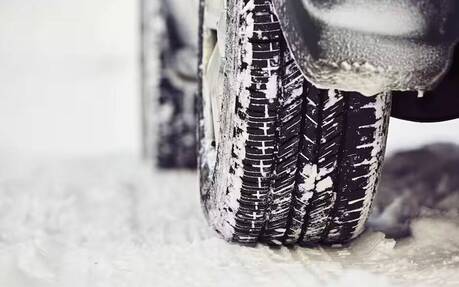Is Climate Change Making Winter Tires More Vital? Survey Says Yes
Extreme winter weather events related to climate change have made winter tires more important than ever according to 76 percent of Canadian motorists polled by the Tire and Rubber Association of Canada (TRAC).
“It seems Canadian drivers are recognizing the changing weather patterns brought about by climate change,” says TRAC president and CEO Carol Hochu. “The prospect of more extreme winter weather has clearly given drivers a deeper appreciation of the superior grip and stopping power offered by winter tires.”
- Also: Where and When Are Winter Tires Mandatory in Canada?
- Also: Best Winter Tires for 2023-2024: Top Picks and Recommendations
TRAC’s 2023 Canadian Consumer Winter Tire Study also reveals evidence that financial pressures are causing some drivers to have doubts about investing in winter tires. Thirty-one percent said they are now less likely to buy winter tires because of high living costs. Yet, 85 percent of drivers believe winter tires are an important investment despite the rising cost of living.
Increased Usage Across the Country
Outside Quebec, where winter tires are mandatory by law, winter tire usage now stands at 71 percent, up from 69 percent two years ago.
“With 29 percent of drivers still not using winter tires, consumer education must be an ongoing priority to bring about the higher level of winter tire adoption needed to make our wintertime roadways safer,” Hochu adds.
Apparently, the most common reasons for not using winter tires are the belief that all-season tires are good enough (63 percent), high costs (26 percent) and reduced driving in winter (24 percent).
Why Dedicated Winter Tires are Best
Most people are aware that driving on all-season tires in winter months results in longer stopping distances and compromised handling when temperatures fall below 7°C.
All-season tires with the Three-Peak Mountain Snowflake (3PMS) symbol, which meet Transport Canada’s minimum snow traction threshold, offer moderately better traction. However, they are designed for occasional, light-to-medium snowfalls and may not provide the grip needed for severe winter driving conditions common on Canadian roads.
Dedicated winter tires feature softer tread compounds that retain their elasticity even in extremely cold temperatures. They provide superior traction and significantly shorter stopping distances in all winter driving conditions from icy, slushy and snow-covered roads to cold, dry pavement.
